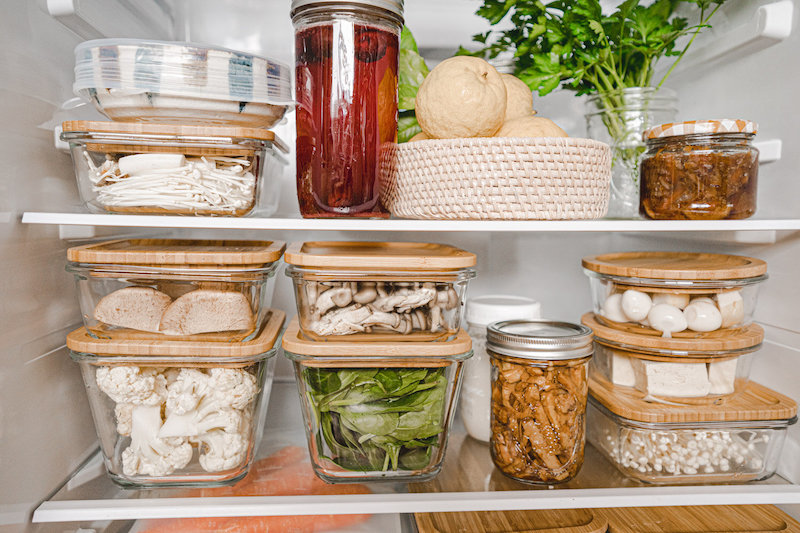Keeping your fridge items fresh and healthy is important and there are certain ways in which you can actually keep the items fresh for a longer duration. This will reduce food waste and ensure you’re consuming safe and nutritious food. Here are some tips to help you achieve that:
Organize Your Fridge:
One major thing to do is to keep similar items together. This means your dairy, produce, and meats should be placed consistently in one place to maintain proper temperature zones. Also, make sure you place items that need to be consumed soon at eye level so you don’t forget about them.
Set the Right Temperature:
You should make sure you are keeping your fridge temperature at or below 40°F (4°C) to slow down bacterial growth and food spoilage.
Make Use Of Airtight Containers:
Did you know that store leftovers and open food items should be kept in airtight containers as this will prevent moisture loss and odors from spreading.
Properly Wrap Foods:
Make sure you are wrapping meats and other perishables in plastic wrap, foil, or freezer paper to keep them fresh and prevent freezer burn. Also, label containers with the date you prepared or opened the food to help you keep track of freshness.
First In, First Out (FIFO):
Practice FIFO to ensure you use older items before newer ones to reduce food waste.
Keep Fruits and Vegetables Fresh:
You should be storing fruits and vegetables in separate drawers with adjustable humidity settings. Some fruits and vegetables produce ethylene gas (e.g., apples, avocados, bananas). Store them away from ethylene-sensitive items like leafy greens.
Don’t Overcrowd:
Ensure there’s enough space between items for proper air circulation. Overcrowding can lead to uneven cooling and food spoilage. Also, clean up spills and remove expired items promptly to prevent odors and bacterial growth. Clean your fridge’s interior at least once a month
Check Expiration Dates:
Regularly check the expiration dates on products and discard anything that’s past its prime. It is essential you remove items that you don’t need anymore. Placing a thermometer inside your fridge to ensure it maintains a safe temperature.
Rotating Products
Move older products to the front of the fridge and newer ones to the back to ensure you use older items first.
Avoid Overpacking the Freezer:
Overloading the freezer can make it harder for air to circulate, leading to uneven freezing and potential freezer burn.
By following these tips, it becomes easier to have a well-organized fridge and keep your items fresh and healthy for longer, ultimately reducing food waste and ensuring safe consumption.


























